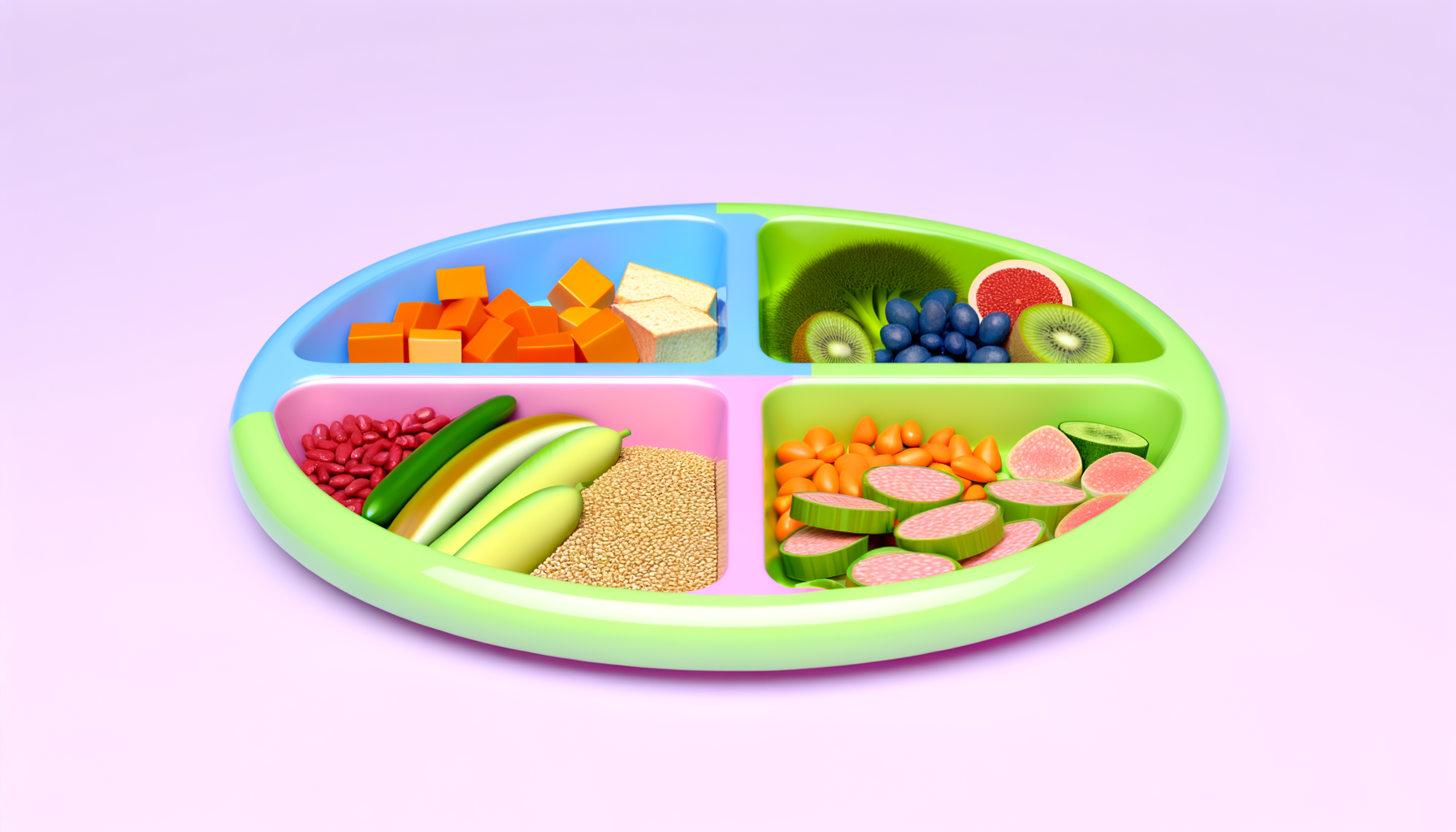Creating a Nutritious Environment for Neurodivergent Children
Nutrition plays a crucial role in the health and well-being of all children, but it is particularly important for those with neurodivergent conditions such as autism spectrum disorder (ASD) and attention deficit hyperactivity disorder (ADHD). These children often face unique challenges during mealtimes, including sensory sensitivities, restricted diets, and behavioral issues. Here’s how the Calorie Calculator Cloud can support the nutritional needs of neurodivergent children.
Establishing a Structured Mealtime Routine
Creating a structured mealtime routine is essential for neurodivergent children. This routine helps them feel more secure and prepared, reducing anxiety and resistance during meals. Parents can set consistent meal and snack times and use visual cues such as schedules on the fridge or timers on the counter to help the child anticipate mealtimes[1].
The Calorie Calculator Cloud can be a valuable tool in this process by helping parents plan and track meals. For instance, the calculator can provide detailed macronutrient breakdowns, ensuring that each meal is balanced and meets the child’s nutritional needs. This consistency can be particularly beneficial when combined with visual aids and a predictable routine.
Creating a Calm and Distraction-Free Environment
A calm and distraction-free environment is vital for reducing sensory overload and promoting focused eating. Turning off the television, avoiding toys or electronic devices at the table, and creating a soothing atmosphere can significantly improve mealtime experiences[1].
While the Calorie Calculator Cloud does not directly control the environment, it can help parents plan meals that are less likely to cause sensory issues. For example, if a child has a sensitivity to loud crunching noises, the calculator can suggest softer foods or alternative preparation methods.
Allowing Meal Accommodations
Accommodations during meals can be crucial for neurodivergent children. This might include using a stool or wobble cushion to increase focus, avoiding strong smells, or using noise-canceling headphones if loud foods are problematic[1].
The Calorie Calculator Cloud can help parents identify and plan meals that are compatible with these accommodations. By inputting specific dietary needs and preferences, the calculator can generate meal plans that minimize potential triggers and ensure the child gets the necessary nutrients.
Experimenting with Variety
Expanding the diet of neurodivergent children is often a slow and gradual process. Children with ASD or ADHD may have strong preferences or aversions to certain textures, tastes, or smells. The Calorie Calculator Cloud can assist in this process by suggesting new foods and meal ideas that are tailored to the child’s nutritional needs and preferences[1].
For example, parents can use the calculator to plan snack plates with new foods, encouraging the child to touch, smell, or lick them. Involving the child in meal preparation can also increase their interest in new foods, a strategy that can be facilitated by the detailed meal plans provided by the calculator.
Nutritional Considerations for Autism and ADHD
Children with autism and ADHD often have specific nutritional needs that must be addressed. For instance, balancing blood sugar levels is crucial for individuals with hyperactivity, as fluctuations can impact activity, concentration, and behavior[2].
The Calorie Calculator Cloud can help parents ensure that their child’s diet is balanced and includes essential nutrients. Here are some key considerations:
- Balancing Blood Sugar: Avoid refined carbohydrates and include foods that slow glucose absorption, such as those high in fiber, protein, and healthy fats[2].
- Essential Fats: Ensure a higher intake of omega-3 fatty acids, which have been shown to improve symptoms such as hyperactivity, social ability, and concentration[2].
- Vitamins and Minerals: Include vitamins B6, C, and magnesium, which have been found to improve symptoms in autistic individuals[2].
- Protein and Calcium: Ensure adequate intake of protein and calcium, which are often deficient in children with ASD and are crucial for growth and bone health[4].
Addressing Common Mealtime Challenges
Children with ASD are five times more likely to have mealtime challenges such as tantrums, extreme food selectivity, and ritualistic eating behaviors[4].
The Calorie Calculator Cloud can help mitigate these challenges by providing personalized meal plans that cater to the child’s specific needs and preferences. Here are some strategies that can be supported by the calculator:
- Avoiding Trigger Foods: Identify and avoid foods that cause sensory issues or behavioral problems, such as those high in refined sugar and saturated fats[5].
- Ensuring Adequate Hydration: Plan meals that include hydrating foods and ensure the child meets their daily fluid intake, which is crucial for overall health and behavior management[5].
- Consulting with Healthcare Providers: Use the calculator in conjunction with advice from healthcare providers to ensure that any dietary changes or supplements are safe and effective[4].
Case Studies and Real-World Examples
Several users of the Calorie Calculator Cloud have reported positive outcomes in managing the nutritional needs of neurodivergent children.
For example, Maria G., a dietitian, noted that the calculator’s accuracy and user-friendly interface made it easier for her to reach and engage with her audience effectively. James L., a fitness trainer, found that the calculator helped his clients get instant feedback on their meal plans, which was particularly beneficial for those with specific dietary needs[3].
Conclusion and Next Steps
Managing the nutritional needs of neurodivergent children requires a comprehensive and patient approach. The Calorie Calculator Cloud is a valuable tool that can help parents and caregivers plan and track balanced meals, address specific dietary needs, and create a more positive mealtime environment.
To get started, consider the following steps:
- Sign Up for a Free Trial: Explore the features of the Calorie Calculator Plans and see how it can fit into your meal planning routine[3].
- Consult with Healthcare Providers: Use the calculator in conjunction with advice from healthcare providers to ensure that any dietary changes or supplements are safe and effective[4].
- Implement a Structured Routine: Create a consistent mealtime routine and use visual aids to help your child feel more secure and prepared[1].
By combining these strategies with the support of the Calorie Calculator Cloud, you can help establish positive mealtime experiences and ensure your neurodivergent child receives the balanced nutrition they need.








